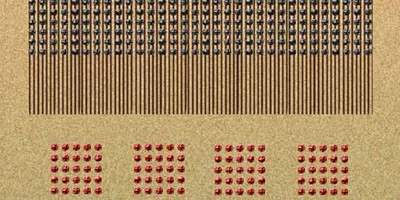Attack Statistics, Solve Problems
Posted on15 Aug 2013
Tagsassumptions, arbitrariness, definitions, intangibles, measure, numbers, perspective, problem solving, questioning techniques, statistics, tangibles, The Economist, Glass-Sand-Water Analogy
Comments0
If you don’t like the rules, change them. The article, “Boundary Problems” [The Economist, August 3, 2013 edition], reports that the United... Read More
Train Brain to See Smaller Parts, Solve Problems Better
Posted on03 May 2012
Tags12 Most, Battle of Pydna, connotations, definitions, intelligence, Macedonian, problem solving, Roman, Techniques, Thoughts, training
Comments0
A common way to tackle problems is to break them down into small parts. How do we train brain to see smaller... Read More
Most Influential Book: Roget’s Thesaurus
Someone once asked me, “What are the twenty most influential books in your life?” I listed Roget’s Thesaurus as one. It helps... Read More
Problem-solving Technique: Integrated Assumption
Even though writing down the problem can help us solve it, it’s also a form of defining the problem. Thus, we will... Read More
Euphemisms: Preferring Illusions to Reality
Posted on02 Feb 2012
Tagslabels, words, word choice, vanilla words, Tom Cruise, The Economist, sensitivity, reality, phraseology, Making Murder Respectable, Jack Nicholson, illusion, glass, George Orwell, food, euphemisms, definitions, connotations, compensation, cognitive dissonance, A Few Good Men, 1984
Comments4
Words have power, not only in their definitions but also, more importantly, in their connotations. The article, “Making Murder Respectable,” from the... Read More
Solving Problems Using the “Abstract to the Practical” Perspective
Posted on10 Feb 2011
Tagsservice, abstract to the practical, definitions, details, ideas, problem solving, process, product
Comments0
I’ve had a lot of success solving problems by trying to address the challenges of moving an idea from the abstract to... Read More
Problem-solving Technique: Attack Definitions
Posted on02 Dec 2010
Tagsfocus, analogy collection, Castle Wall - Definition Analogy, visualize, vagueness, problem solving, perception, objectivity, intuition, definitions, confusion, castle
Comments3
Writing down the problem was a problem-solving technique I discussed in a previous post. Attacking definitions is another that complements this one.... Read More
Definitions, Connotations and Personality Assessment
Posted on13 Sep 2010
Tagsphraseology, definitions, dominance, feelings, humanistic, impression, intuition, logic, Personality, perspective, context, planning, quality, quantity, spectrum, subjective, Thoughts, understanding, word choice, approaches, collaboration, connotations
Comments1
Word choice and phrasing (phraseology) are simple ways we can assess personalities. As I’ve said in previous postings, everything we think, do... Read More
“Which Box Do You Want to be In?” Personality Assessment Case Study
Posted on29 Jul 2010
Tagsconnotations, definitions, emotions, feelings, function, insight, motivation, Personality, team building, word choice, Real-time Personality Assessment Series
Comments0
Word choice tells much about personality. This personality assessment case study shows how this works. It can help identify personality types according... Read More
How Can Writing Down The Problem Help Solve It?
Posted on22 Jul 2010
Comments6
One of the best problem-solving techniques I learned is writing down the problem. Doing this as detailed as possible helps by: Putting... Read More




